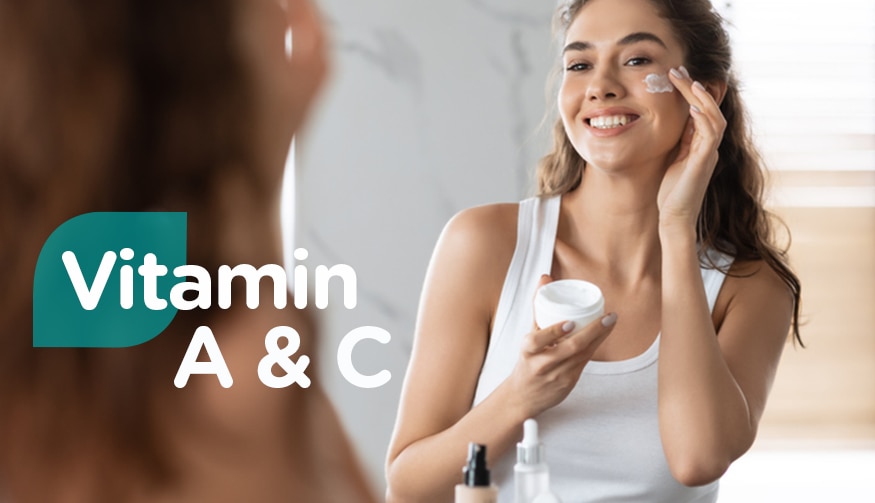
When it comes to nutrients intake, not only should you focus on creams and lotions that you put on your skin but also what you put into your body. To maximise the benefit, you have to feed your skin from the inside and out. Read on and find out which nutrients do you need to keep your skin healthy and looking its best?
Vitamins C and E.
Vitamin C and E help to counter the effects of sun exposure by reducing the damage caused by free radicals. Free radicals gobble up collagen and elastin, and eventually cause wrinkles and other signs of aging. When these two vitamins are combined in a lotion, they can be highly protective against sun damage. Moreover, eating vitamin C rich fruits and vegetables such as bell peppers, broccoli, cauliflower, and leafy greens can replace the loss of vitamin through your skin. You can also take vitamin C supplements of up to 500 to 1,000 milligrams of per day.

Vitamin A.
Vitamin A is necessary for the maintenance and repair of skin tissue. If you have adequate vitamin A intake from the foods you eat, adding more probably won’t do much more for your skin. However, if those levels drop even a little below normal, you’re likely to see some skin-related symptoms such as dryness and flaky complexion. Vitamin A1, also known as retinol can be found in animal-sourced foods, such as oily fish, liver, cheese and butter. Your body can also produce vitamin A from carotenoids found in plants like sweet potatoes, kale and carrots.

Vitamin B Complex.
The basis of skin, nail, and hair cells is formed by biotin that you can find in Vitamin B. Without adequate amounts of the nutrient, your skin may end up having an itchy and scaly skin reaction. Biotin can be found in many foods including bananas, eggs, oatmeal, and rice. Niacin, also known as Vitamin b3, has anti-inflammatory properties to soothe dry, irritated skin, in higher concentrations it can also work as a lightening agent to even out uneven skin tone.

Get your favorite health, beauty and wellness products at Watsons. Shop online here!










